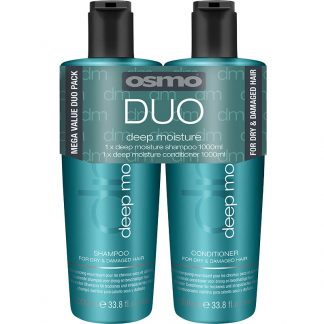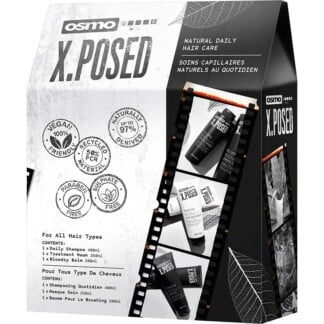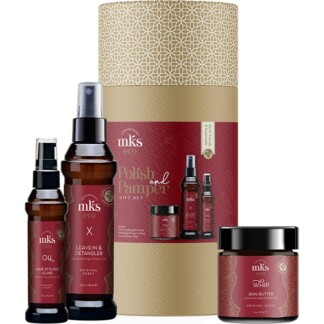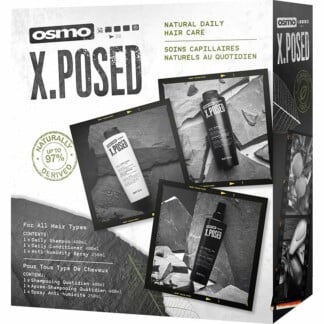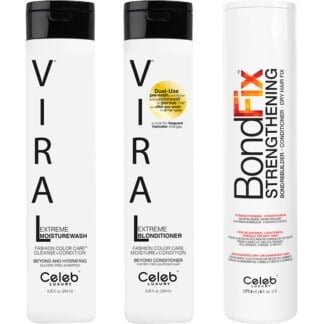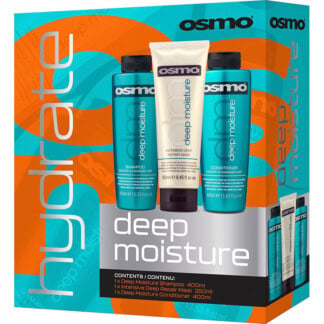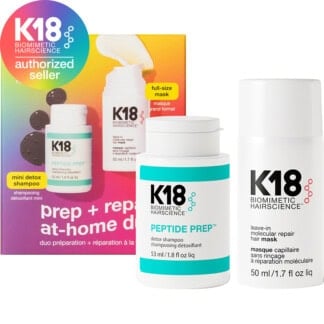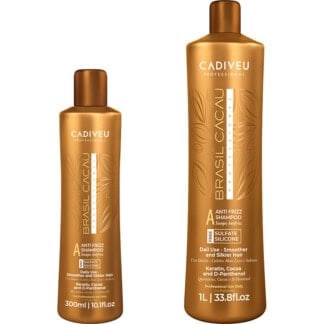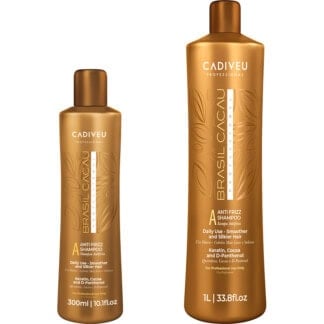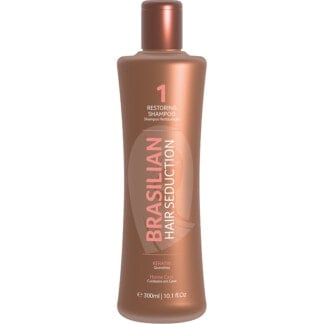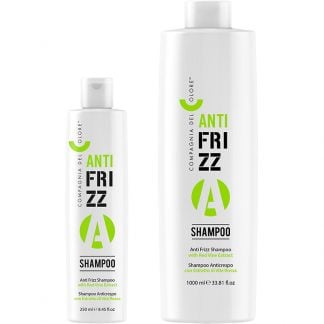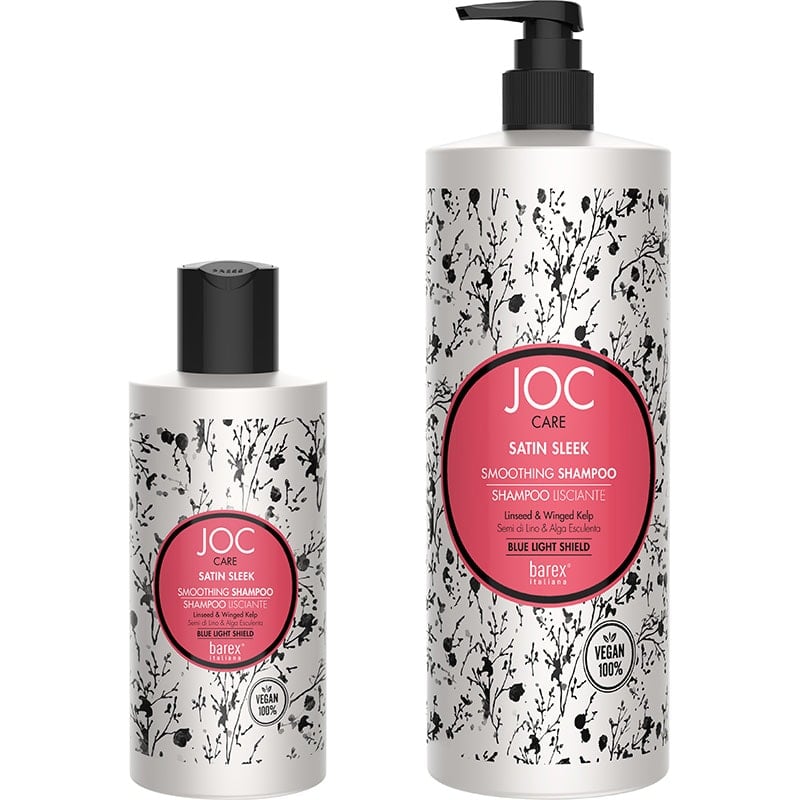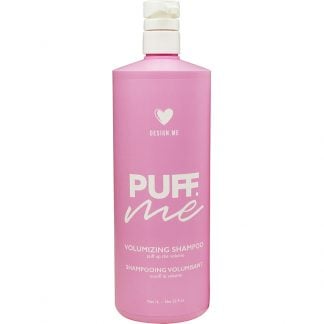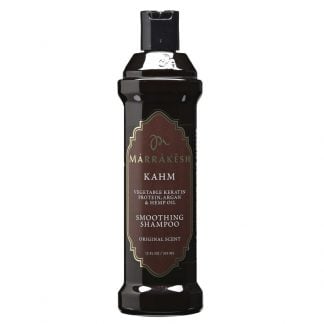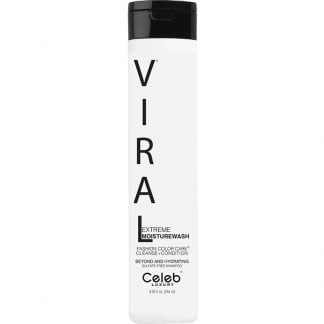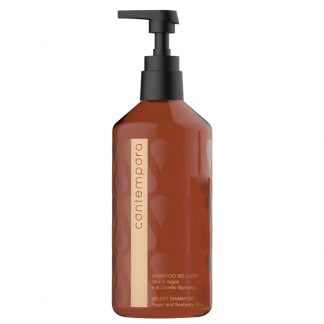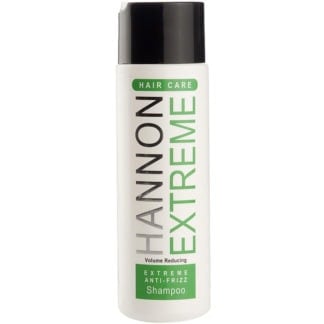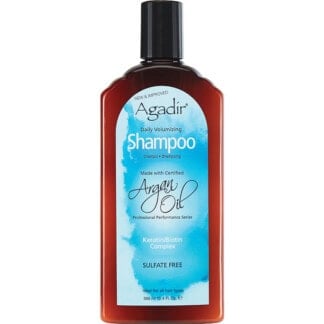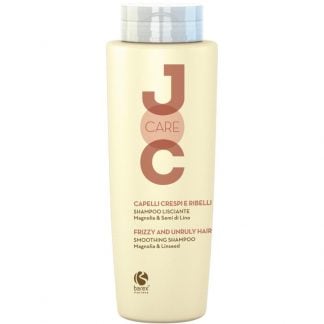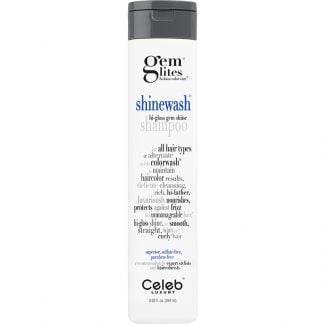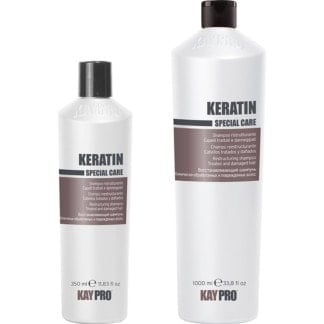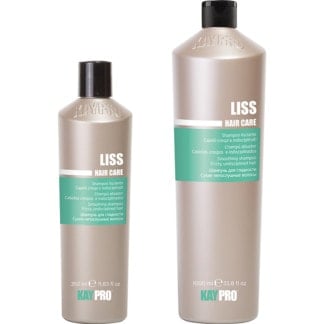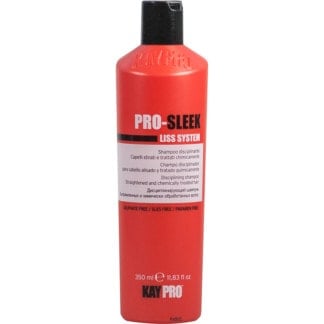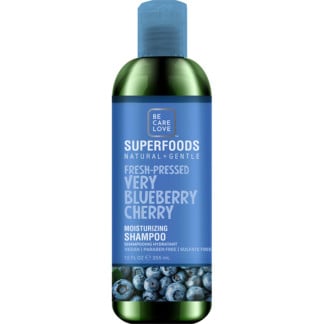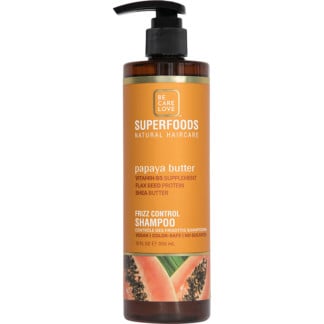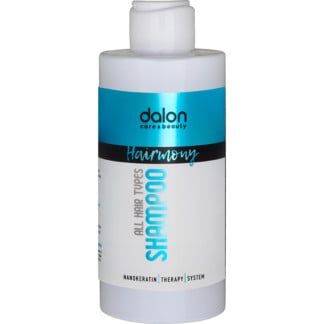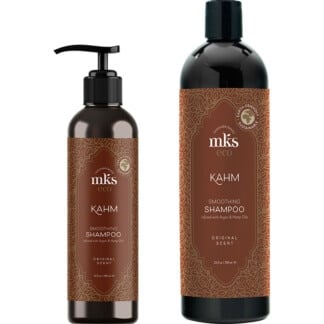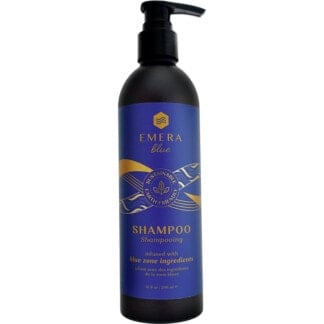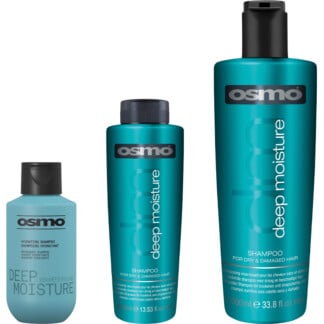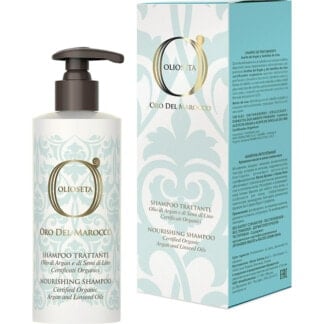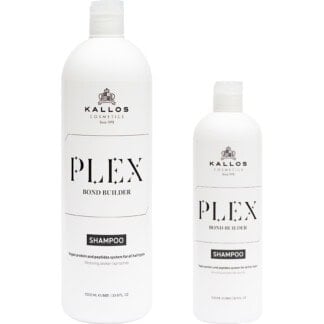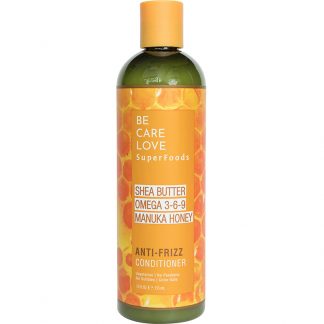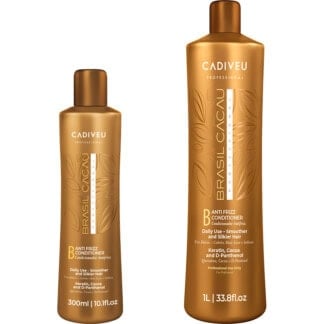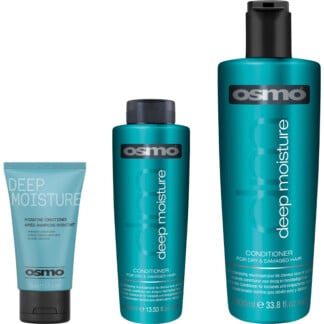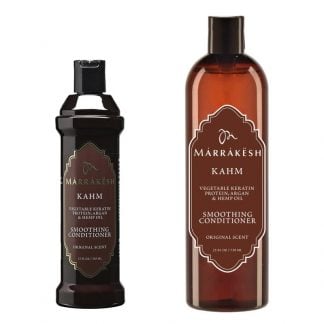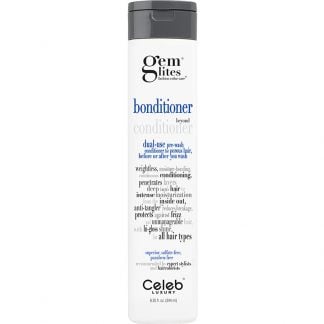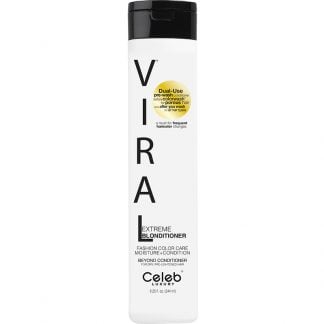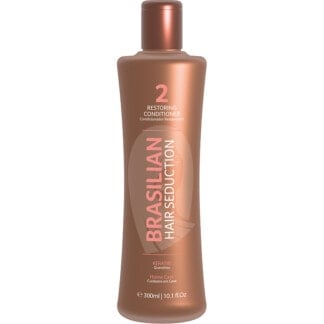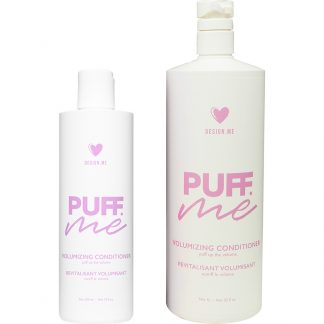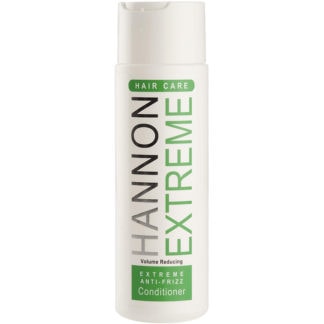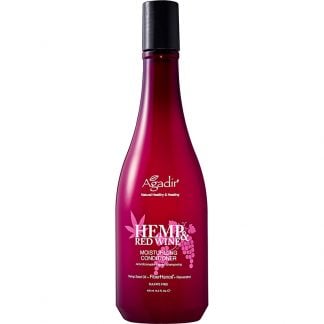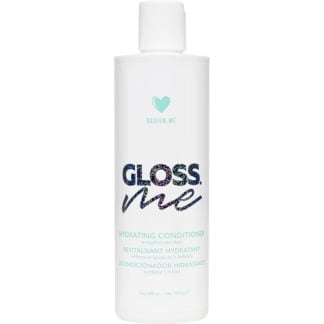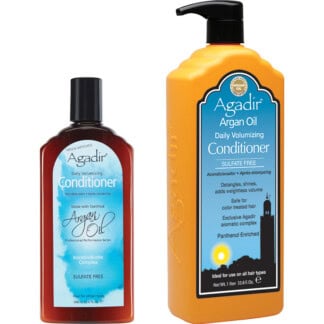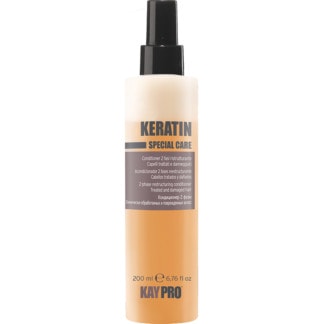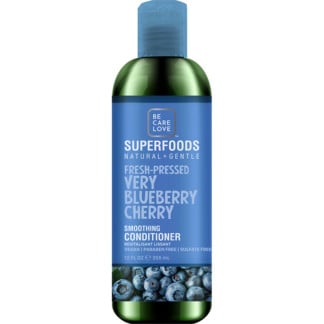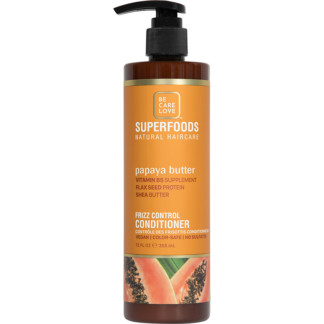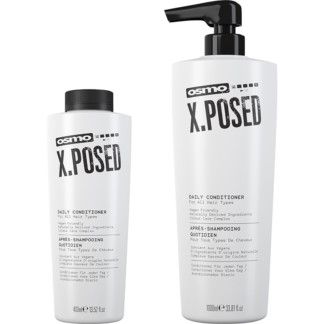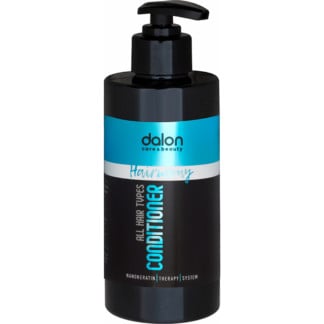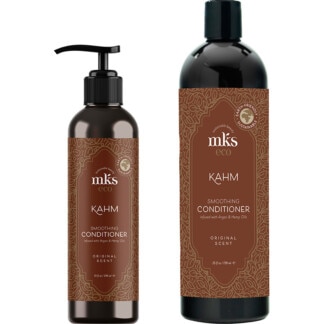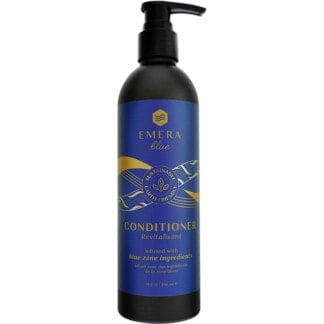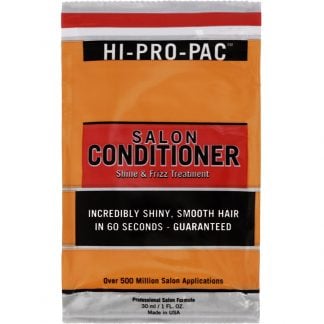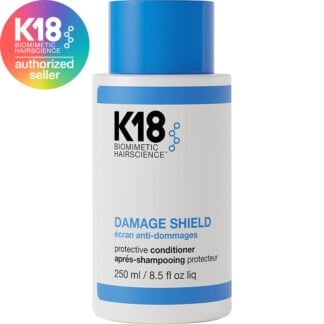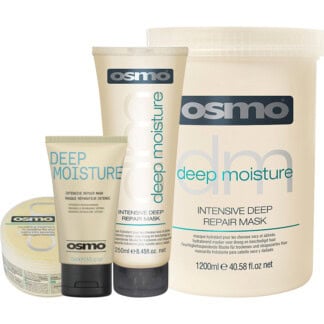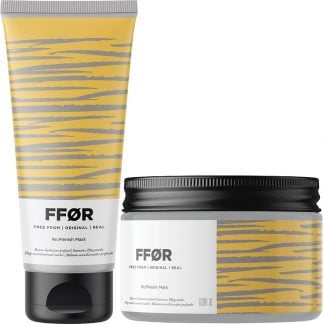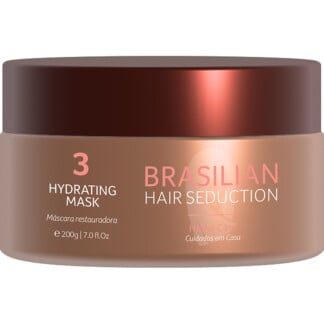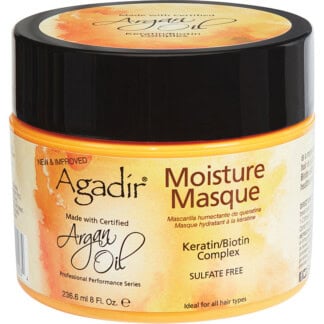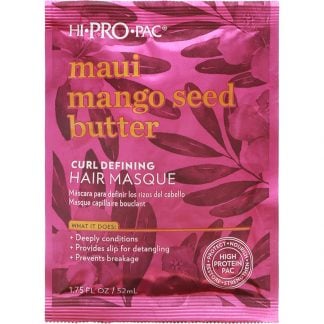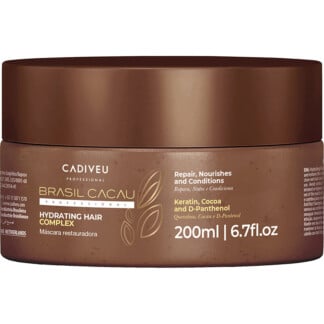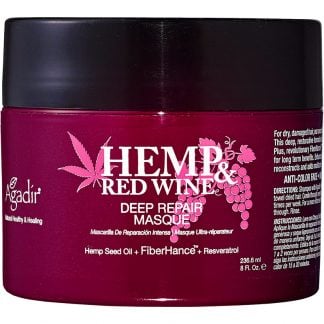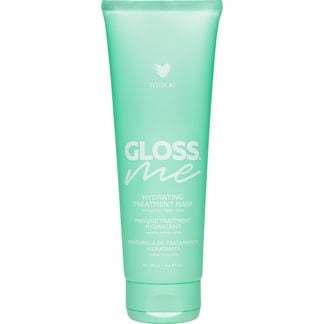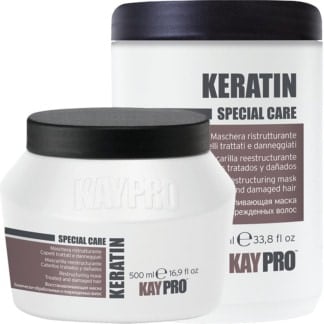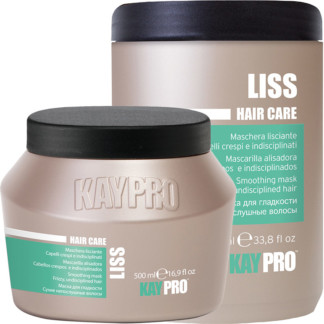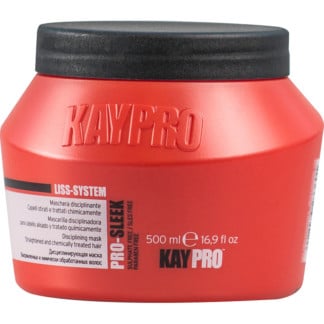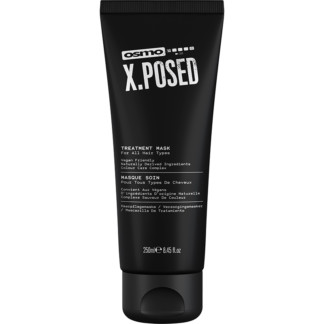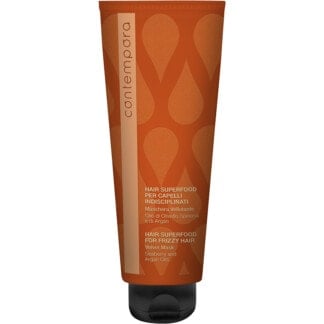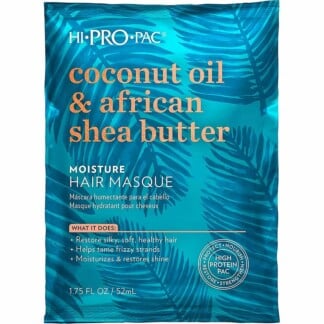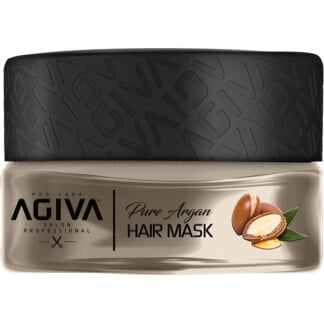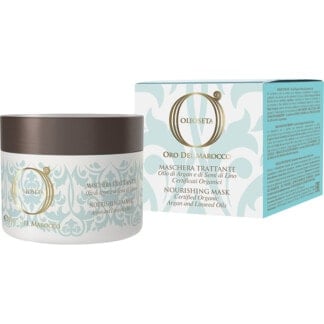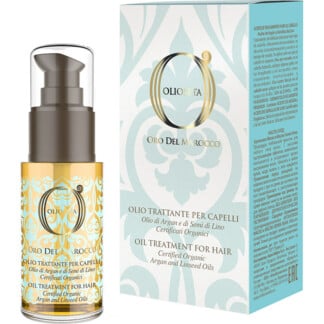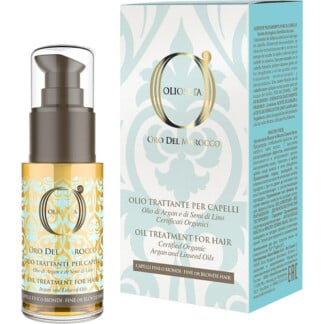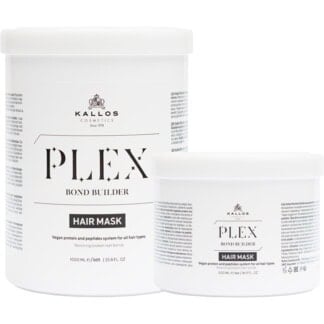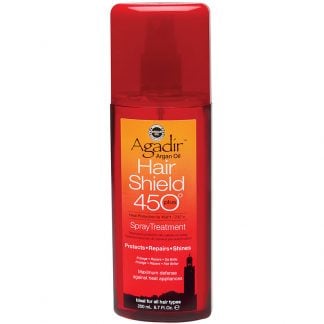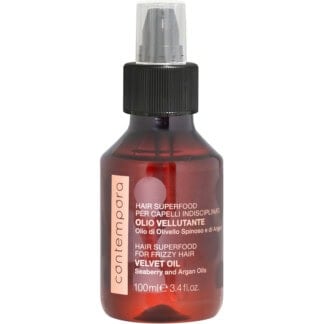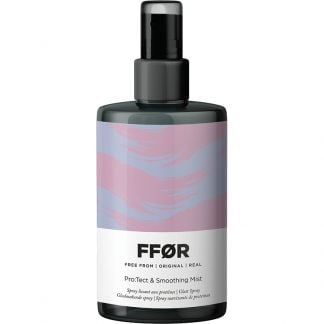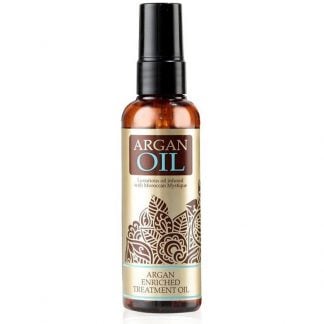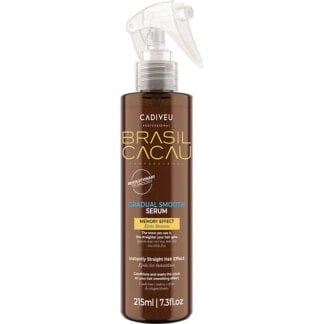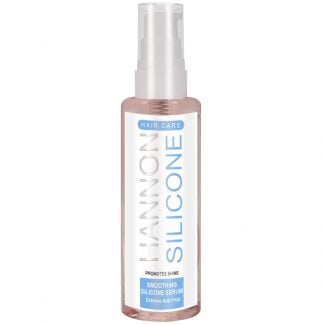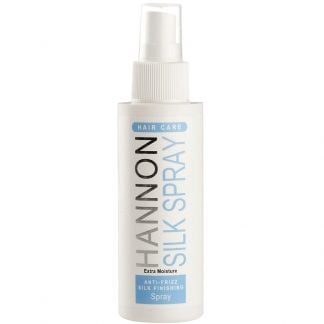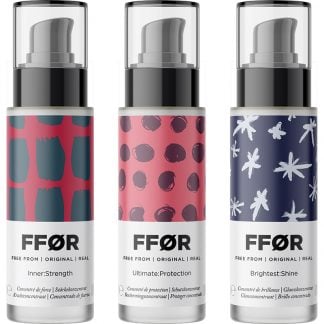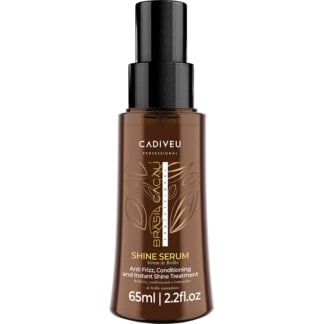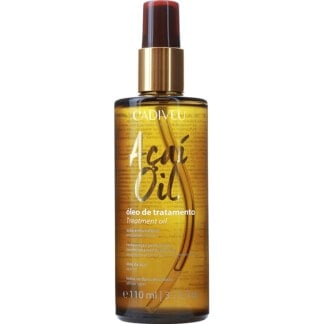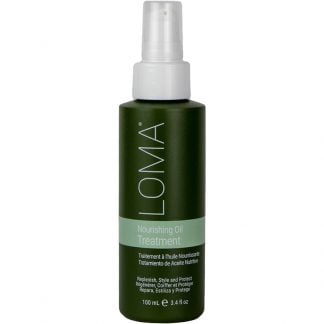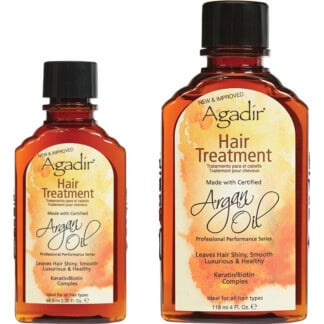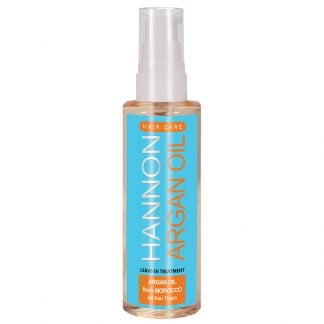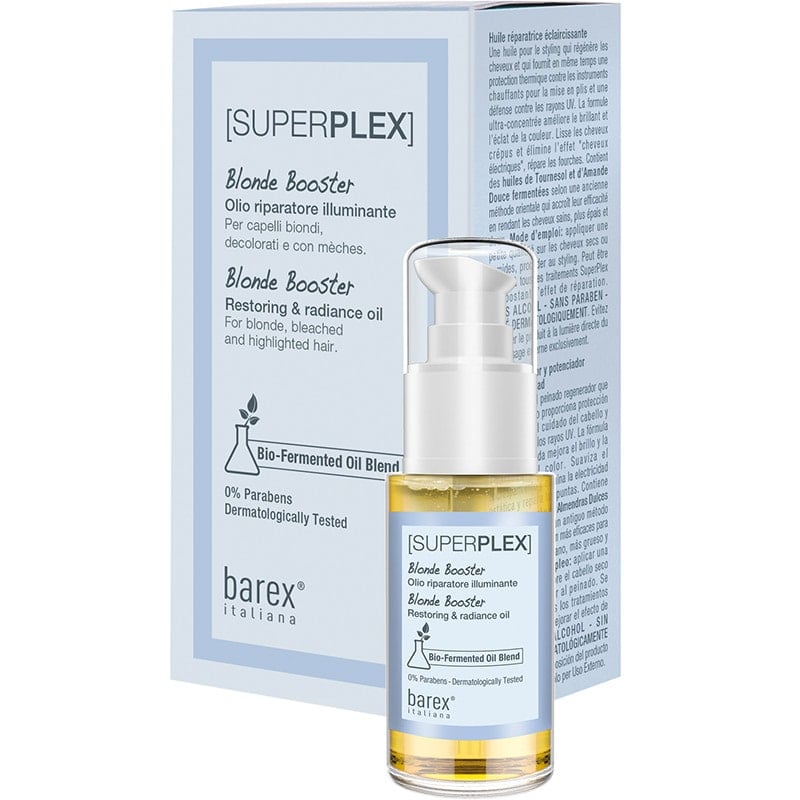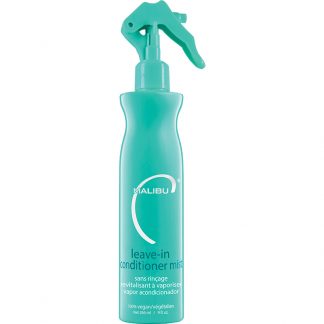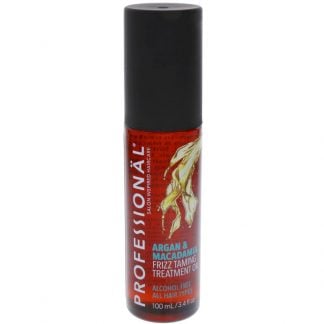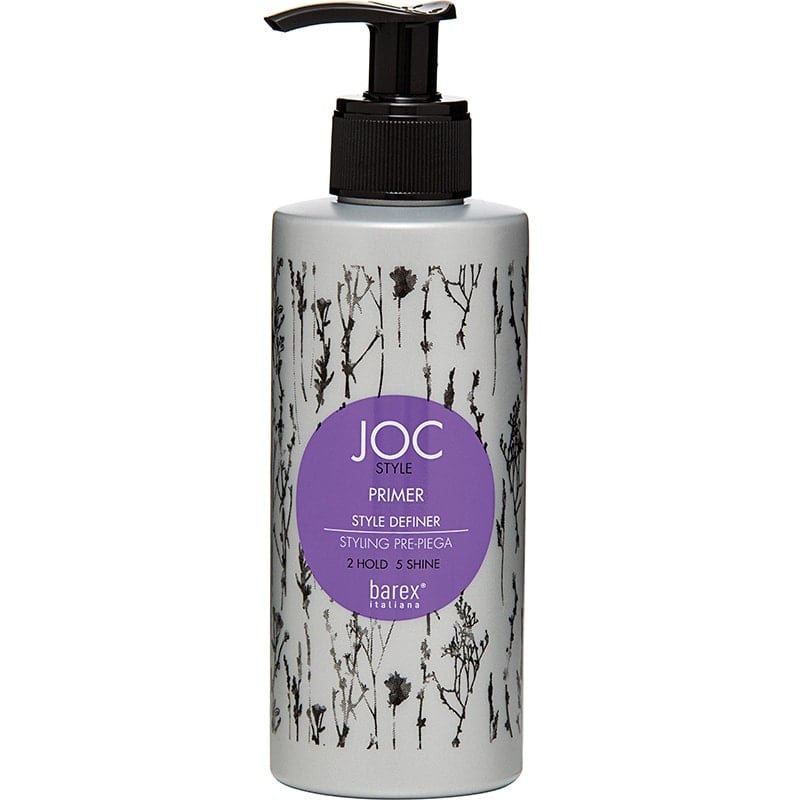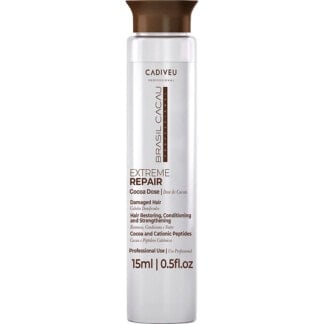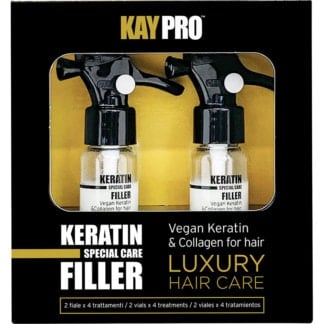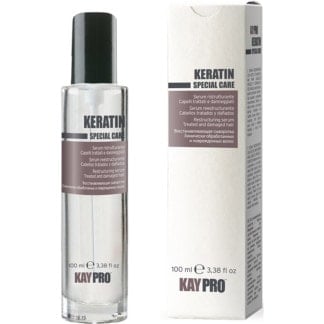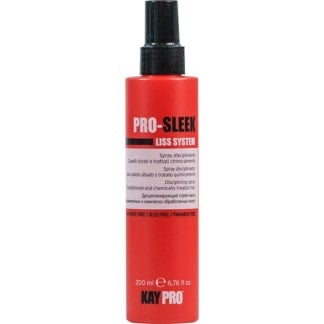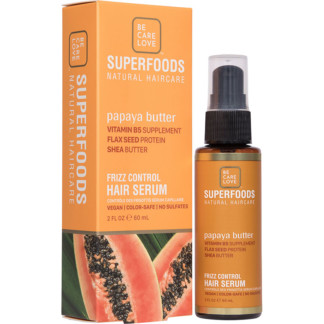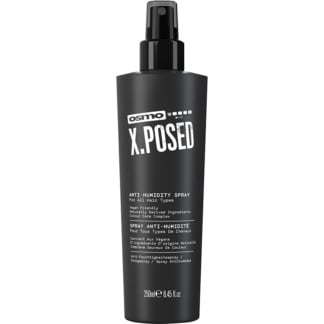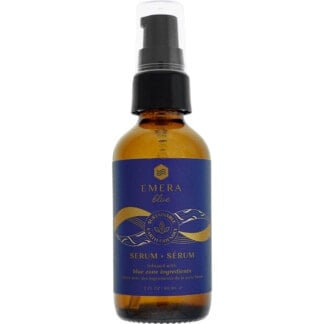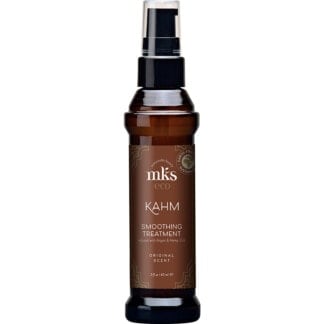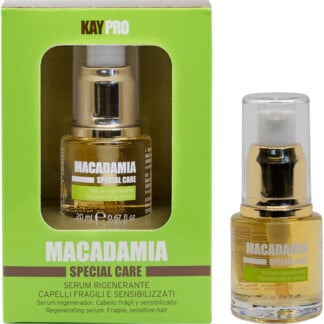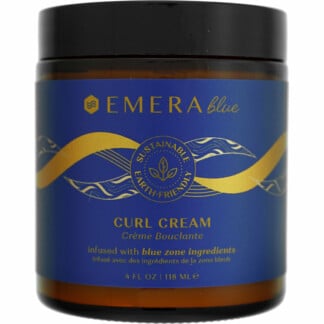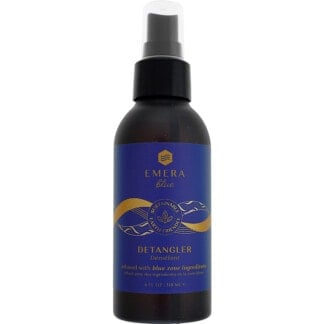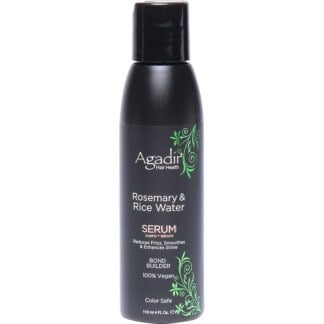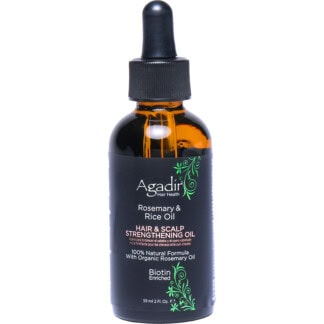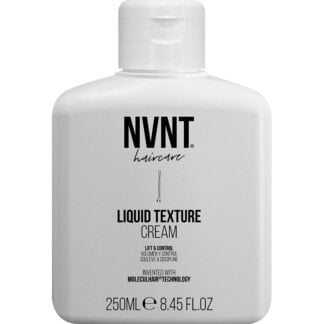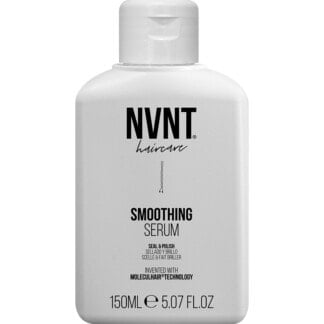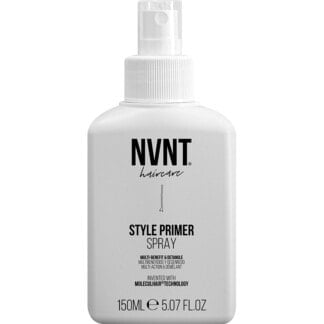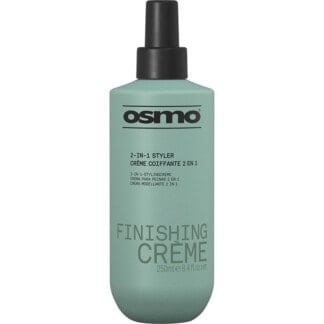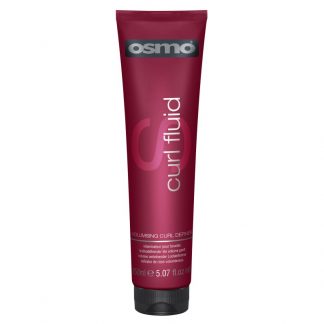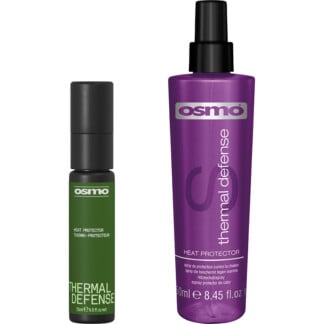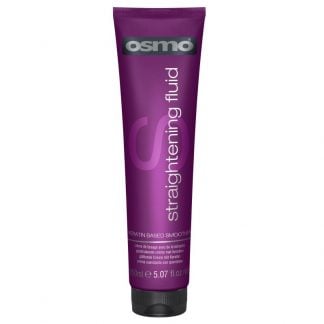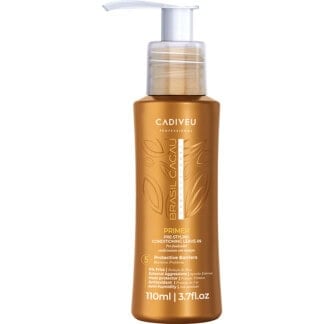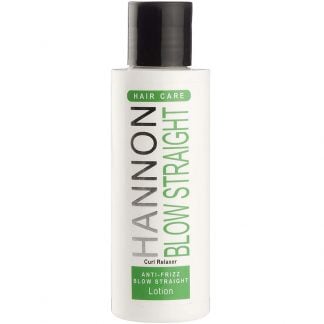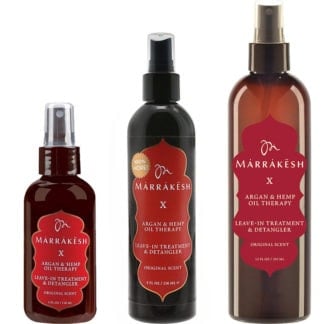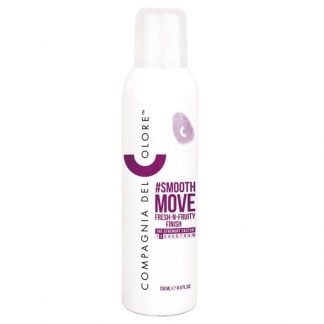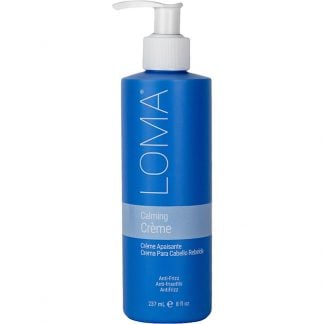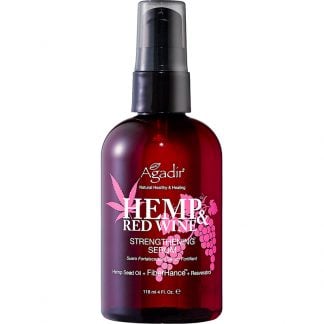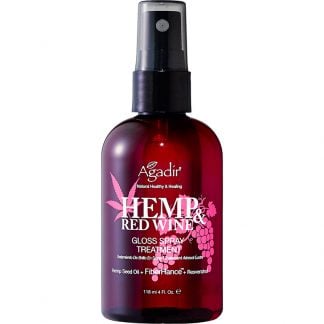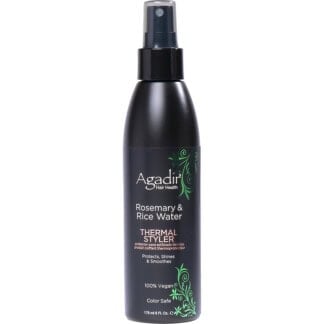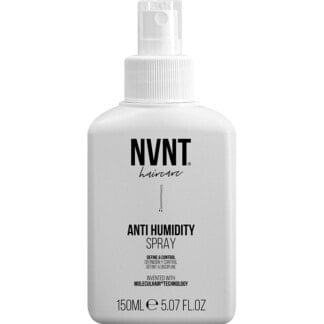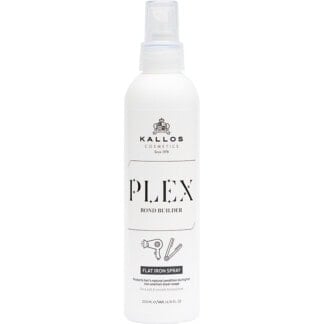
Frizzy Hair Crimping Your Style?
Frizzy hair does the opposite of what you want it to do. It stands away from the rest of your hair – and it can leave your hair looking frazzled and unkempt.
How to fix frizzy hair
When hair is frizzy, the scales that make up the hair’s cuticles are raised. Humidity passes through the cuticles and swells the hair strands. This happens especially when hair is dry. The solution? Give hair the moisture it craves, and smooth and seal the cuticles.
For in-depth information about what causes frizzy hair, see our frizzy hair FAQ below.
K18 – the ultimate hair repair system.
Damage is often the main culprit of frizz. Treat frizz immediately and long term with K18’s revolutionary leave-in oil. Cuticles are immediately smoothed for instant frizz control, while the breakthrough repairing K18Peptide™ inside the oil penetrates the hair structure to repair damage and stop the frizz it causes. Damaged hair is much more likely to cause frizz, so taking care of it is the first step.
-
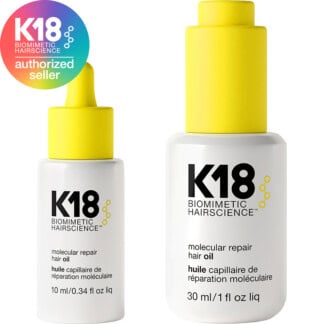 K18 Molecular Repair Hair OilR378.97 – R1,026.51 incl. VATRated 4.47 out of 5 based on 38 customer ratings
K18 Molecular Repair Hair OilR378.97 – R1,026.51 incl. VATRated 4.47 out of 5 based on 38 customer ratings
Frizzy hair care solutions
Recommended combinations of leading hair treatment products for frizzy hair, for less than the cost of buying the products separately. Also includes combo packs from other brands to suit all hair types.
-
OSMO Deep Moisture Banded Pack Duo Shampoo & Conditioner (2 x 1 Litre)
Rated 4.89 out of 5R1,100.73 incl. VAT Add to cart -
OSMO X.POSED Treatment Gift Pack, 3 Pieces
Rated 0 out of 5R517.33 incl. VAT Add to cart -
MKS eco Polish & Pamper Gift Set, 3 Pieces
Rated 0 out of 5R499.00 incl. VAT Add to cart -
OSMO X.POSED Daily Care Gift Pack, 3 Pieces
Rated 0 out of 5R515.80 incl. VAT Add to cart -
Celeb Luxury Frizzy Hair Essential Solution
Rated 0 out of 5R842.28 incl. VAT Add to cart -
OSMO Deep Moisture Gift Pack, 3 Pieces
Rated 4.75 out of 5R466.97 incl. VAT Add to cart -
K18 Prep + Repair At-Home Duo Set, 2 Pieces
Rated 0 out of 5R1,270.48 incl. VAT Add to cart
Good shampoo for frizzy hair
Smoothing shampoo for frizzy hair uses natural oils, amino acids and protein (like keratin) to repair and smooth the hair. Reduces frizz, static and fly-away strands, making hair much easier to manage, with less of a matted, frizzy finish.
-
Brasil Cacau Anti Frizz Sulphate Free Shampoo
Rated 4.92 out of 5R287.38 – R733.76 incl. VAT Select options This product has multiple variants. The options may be chosen on the product page -
Brasil Cacau Anti Frizz Shampoo
Rated 4.85 out of 5R241.84 – R647.71 incl. VAT Select options This product has multiple variants. The options may be chosen on the product page -
Brasilian Hair Seduction Restoring Shampoo, 300ml
Rated 4.94 out of 5R238.29 incl. VAT Add to cart -
CDC Daily Care Anti-Frizz Shampoo
Rated 4.50 out of 5R135.54 – R286.74 incl. VAT Select options This product has multiple variants. The options may be chosen on the product page -
JOC Care Satin Sleek Smoothing Shampoo
Rated 5.00 out of 5R215.97 – R383.47 incl. VAT Select options This product has multiple variants. The options may be chosen on the product page -
DESIGN.ME PUFF.ME Volumizing Shampoo, 1 Litre
Rated 5.00 out of 5R944.25 incl. VAT Add to cart -
Marrakesh Kahm Smoothing Shampoo, 355ml
Rated 5.00 out of 5R128.75 incl. VAT Add to cart -
Celeb Luxury Viral Extreme Clear Moisturewash, 244ml
Rated 5.00 out of 5R309.25 incl. VAT Add to cart -
Contempora Frizzy Hair Argan & Seaberry Velvet Shampoo, 500ml
Rated 5.00 out of 5R224.42 incl. VAT Add to cart -
Hannon Extreme Anti-Frizz Shampoo, 250ml
Rated 0 out of 5R258.00 incl. VAT Add to cart -
Agadir Argan Oil Daily Volumizing Shampoo, 366ml
Rated 5.00 out of 5R389.81 incl. VAT Add to cart -
JOC Care Smoothing Shampoo, 250ml
Rated 4.67 out of 5R118.20 incl. VAT Add to cart -
Celeb Luxury Gem Lites Gloss Shinewash Shampoo, 244ml
Rated 4.50 out of 5R308.94 incl. VAT Add to cart -
KAYPRO Keratin Shampoo for Treated Hair
Rated 4.50 out of 5R204.00 – R294.44 incl. VAT Select options This product has multiple variants. The options may be chosen on the product page -
KAYPRO Liss Shampoo for Frizzy Hair
Rated 5.00 out of 5R148.80 – R352.50 incl. VAT Select options This product has multiple variants. The options may be chosen on the product page -
KAYPRO Pro Sleek Shampoo for Straight Hair, 350ml
Rated 5.00 out of 5R277.50 incl. VAT Add to cart -
Be Care Love SuperFoods Natural & Gentle Fresh-Pressed Very Blueberry Cherry Moisturizing Shampoo, 355ml
Rated 0 out of 5R458.95 incl. VAT Add to cart -
Be Care Love SuperFoods Frizz Control Shampoo, 355ml
Rated 0 out of 5R435.00 incl. VAT Add to cart -
Dalon Hair Shampoo for All Hair Types, 300ml
Rated 5.00 out of 5R27.50 incl. VAT Add to cart -
MKS eco Kahm Smoothing Shampoo
Rated 5.00 out of 5R239.00 – R365.00 incl. VAT Select options This product has multiple variants. The options may be chosen on the product page -
EMERA BLUE Shampoo, 296ml
Rated 4.63 out of 5R305.00 incl. VAT Add to cart -
OSMO Deep Moisture Shampoo
Rated 4.86 out of 5R97.62 – R491.81 incl. VAT Select options This product has multiple variants. The options may be chosen on the product page -
Olioseta Oro Del Marocco Nourishing Shampoo, 250ml
Rated 0 out of 5R307.42 incl. VAT Add to cart -
Kallos Plex Bond Builder Shampoo
Rated 5.00 out of 5R163.80 – R217.50 incl. VAT Select options This product has multiple variants. The options may be chosen on the product page
Conditioner for frizzy hair
The best conditioner for frizzy hair is intensively moisturising and rich in natural oils. It coats and helps seal the hair cuticles. Sealed cuticles cause much less frizz, preventing the hair from looking and feeling like straw.
-
Be Care Love SuperFoods Anti-Frizz Conditioner, 355ml
Rated 0 out of 5R229.50 incl. VAT Add to cart -
Brasil Cacau Anti Frizz Conditioner
Rated 4.94 out of 5R256.05 – R669.87 incl. VAT Select options This product has multiple variants. The options may be chosen on the product page -
OSMO Deep Moisture Conditioner
Rated 5.00 out of 5R97.62 – R609.47 incl. VAT Select options This product has multiple variants. The options may be chosen on the product page -
Marrakesh Kahm Smoothing Conditioner
Rated 0 out of 5R144.55 – R494.50 incl. VAT Select options This product has multiple variants. The options may be chosen on the product page -
Celeb Luxury Gem Lites Dual-Use Bonditioner, 244ml
Rated 5.00 out of 5R308.90 incl. VAT Add to cart -
Celeb Luxury Viral Extreme Dual-Use Blonditioner, 244ml
Rated 0 out of 5R309.01 incl. VAT Add to cart -
Brasilian Hair Seduction Restoring Conditioner, 300ml
Rated 4.91 out of 5R239.55 incl. VAT Add to cart -
DESIGN.ME PUFF.ME Volumizing Conditioner
Rated 5.00 out of 5R312.20 – R944.25 incl. VAT Select options This product has multiple variants. The options may be chosen on the product page -
Hannon Extreme Anti-Frizz Conditioner, 250ml
Rated 0 out of 5R279.00 incl. VAT Add to cart -
Agadir Hemp & Red Wine Moisturizing Conditioner, 430ml
Rated 0 out of 5R311.25 incl. VAT Add to cart -
DESIGN.ME GLOSS.ME Hydrating Conditioner, 300ml
Rated 5.00 out of 5R364.00 incl. VAT Add to cart -
Agadir Argan Oil Daily Volumizing Conditioner
Rated 5.00 out of 5R346.68 – R495.85 incl. VAT Select options This product has multiple variants. The options may be chosen on the product page -
KAYPRO Keratin Biphase Conditioner for Treated Hair, 200ml
Rated 0 out of 5R330.00 incl. VAT Add to cart -
Be Care Love SuperFoods Natural & Gentle Fresh-Pressed Very Blueberry Cherry Smoothing Conditioner, 355ml
Rated 0 out of 5R458.95 incl. VAT Add to cart -
Be Care Love SuperFoods Frizz Control Conditioner, 355ml
Rated 0 out of 5R435.00 incl. VAT Add to cart -
OSMO X.POSED Daily Conditioner
Rated 3.86 out of 5R213.26 – R596.55 incl. VAT Select options This product has multiple variants. The options may be chosen on the product page -
Dalon Hair Conditioner for All Hair Types, 300ml
Rated 4.67 out of 5R27.50 incl. VAT Add to cart -
MKS eco Kahm Smoothing Conditioner
Rated 5.00 out of 5R269.00 – R355.00 incl. VAT Select options This product has multiple variants. The options may be chosen on the product page -
EMERA BLUE Conditioner, 296ml
Rated 4.63 out of 5R305.00 incl. VAT Add to cart -
Hi Pro Pac Brilliant Shine Conditioner Sachet, 30ml
Rated 5.00 out of 5R22.00 incl. VAT Add to cart -
K18 Damage Shield Protective Conditioner, 250ml
Rated 4.60 out of 5R609.82 incl. VAT Add to cart
Best hair mask for frizzy hair
Use a hair mask once or twice a week, to inject extra moisture and boost control of frizz. Greatly helpful in preventing further frizz from forming as these masks provide long term protection from the elements. This includes humidity, dryness and sun exposure.
-
NEW
OSMO Deep Moisture Intensive Deep Repair Mask
Rated 4.78 out of 5R97.50 – R459.96 incl. VAT Select options This product has multiple variants. The options may be chosen on the product page -
FFØR Re:Plenish Deep Conditioning Mask
Rated 0 out of 5R331.50 – R552.30 incl. VAT Select options This product has multiple variants. The options may be chosen on the product page -
Brasilian Hair Seduction Hydrating Mask, 200g
Rated 4.89 out of 5R289.89 incl. VAT Out of stock -
Agadir Argan Oil Moisture Masque with Keratin Protein, 236.6ml
Rated 5.00 out of 5R616.60 incl. VAT Add to cart -
Hi Pro Pac Maui Mango Seed Butter Curl Defining Hair Masque, 52ml
Rated 5.00 out of 5R65.09 incl. VAT Add to cart -
JOC Care Satin Sleek Smoothing Express Mask, 1 Litre
Rated 0 out of 5R525.18 incl. VAT Add to cart -
Brasil Cacau Hydrating Hair Complex, 200ml
Rated 4.84 out of 5R282.23 incl. VAT Add to cart -
Agadir Hemp & Red Wine Deep Repair Masque, 236.6ml
Rated 5.00 out of 5R486.79 incl. VAT Add to cart -
DESIGN.ME GLOSS.ME Hydrating Mask, 250ml
Rated 5.00 out of 5R364.00 incl. VAT Add to cart -
KAYPRO Keratin Mask for Treated Hair
Rated 5.00 out of 5R232.50 – R322.50 incl. VAT Select options This product has multiple variants. The options may be chosen on the product page -
KAYPRO Liss Mask for Frizzy Hair
Rated 5.00 out of 5R247.50 – R363.16 incl. VAT Select options This product has multiple variants. The options may be chosen on the product page -
KAYPRO Pro Sleek Mask for Straight Hair, 500ml
Rated 5.00 out of 5R282.00 incl. VAT Add to cart -
OSMO X.POSED Treatment Mask, 250ml
Rated 0 out of 5R201.09 incl. VAT Add to cart -
Contempora Frizzy Hair Argan & Seaberry Velvet Mask, 350ml
Rated 5.00 out of 5R204.73 incl. VAT Add to cart -
Hi Pro Pac Coconut Oil & African Shea Butter Moisture Hair Masque, 52ml
Rated 5.00 out of 5R69.00 incl. VAT Add to cart -
Agiva Pure Argan Hair Mask, 350ml
Rated 5.00 out of 5R188.36 incl. VAT Add to cart -
Olioseta Oro Del Marocco Nourishing Mask, 250ml
Rated 0 out of 5R404.05 incl. VAT Add to cart -
Olioseta Oro Del Marocco Oil Treatment for Hair, 30ml
Rated 3.00 out of 5R342.89 incl. VAT Add to cart -
Olioseta Oro Del Marocco Oil Treatment for Fine or Blonde Hair, 30ml
Rated 5.00 out of 5R327.59 incl. VAT Add to cart -
Kallos Plex Bond Builder Hair Mask
Rated 5.00 out of 5R170.34 – R241.33 incl. VAT Select options This product has multiple variants. The options may be chosen on the product page
Hair oils & treatments for frizzy hair
Hair oils and treatments are some of the best products for dry frizzy hair. They smooth and seal the cuticles, tame fly-aways and protect against split ends – which add to frizz. Great for using when needed or throughout the day so the hair is always protected.
-
Agadir Argan Oil Hair Shield Spray Treatment, 200ml
Rated 4.00 out of 5R758.30 incl. VAT Add to cart -
Contempora Frizzy Hair Argan & Seaberry Velvet Oil, 100ml
Rated 4.60 out of 5R354.02 incl. VAT Add to cart -
FFØR Pro:Tect & Smoothing Mist Spray, 250ml
Rated 5.00 out of 5R375.32 incl. VAT Add to cart -
Truzone Argan Oil, 100ml
Rated 4.00 out of 5R348.47 incl. VAT Out of stock -
Brasil Cacau Gradual Smooth Serum, 215ml
Rated 4.88 out of 5R450.49 incl. VAT Add to cart -
Hannon Silicone Smoothing Serum, 60ml
Rated 5.00 out of 5R245.00 incl. VAT Add to cart -
Hannon Control Anti-Frizz Silk Finishing Spray, 125ml
Rated 3.00 out of 5R250.00 incl. VAT Add to cart -
FFØR Concentrate Drops, 30ml
Rated 0 out of 5R375.00 – R405.15 incl. VAT Select options This product has multiple variants. The options may be chosen on the product page -
Brasil Cacau Shine Serum, 65ml
Rated 4.71 out of 5R287.40 incl. VAT Add to cart -
Brasil Cacau Acai Therapy Oil, 110ml
Rated 4.84 out of 5R449.41 incl. VAT Add to cart -
LOMA Nourishing Oil Treatment, 100ml
Rated 0 out of 5R449.00 incl. VAT Add to cart -
Agadir Argan Oil Hair Treatment
Rated 4.90 out of 5R514.38 – R818.86 incl. VAT Select options This product has multiple variants. The options may be chosen on the product page -
Hannon Argan Oil Leave-In Treatment, 60ml
Rated 5.00 out of 5R264.99 incl. VAT Out of stock -
Superplex Blonde Booster Restoring & Radiance Oil, 30ml
Rated 5.00 out of 5R395.65 incl. VAT Add to cart -
Superplex Lightweight Jelly Fluid, 150ml
Rated 0 out of 5R246.00 incl. VAT Add to cart -
Malibu C Leave-In Conditioner Mist, 266ml
Rated 5.00 out of 5R424.47 incl. VAT Add to cart -
DeMert Professional Argan & Macadamia Frizz Taming Treatment Oil, 100ml
Rated 0 out of 5R374.67 incl. VAT Add to cart -
JOC Style PRIMER Style Definer, 200ml
Rated 0 out of 5R345.00 incl. VAT Add to cart -
Brasil Cacau Extreme Repair Cocoa Dose, 15ml
Rated 4.69 out of 5R94.27 incl. VAT Add to cart -
Marrakesh Oil Hair Styling Elixir & X Leave-In Caddy Set, 2 Pieces
Rated 5.00 out of 5R395.00 incl. VAT Add to cart -
KAYPRO Keratin Filler Vials for Treated Hair, 2 x 10ml
Rated 3.00 out of 5R148.80 incl. VAT Add to cart -
KAYPRO Keratin Serum for Treated Hair, 100ml
Rated 0 out of 5R561.00 incl. VAT Add to cart -
KAYPRO Pro Sleek Disciplining Spray for Straight Hair, 200ml
Rated 5.00 out of 5R243.75 incl. VAT Add to cart -
Be Care Love SuperFoods Frizz Control Serum, 60ml
Rated 5.00 out of 5R458.95 incl. VAT Add to cart -
OSMO X.POSED Anti-Humidity Spray, 250ml
Rated 5.00 out of 5R252.29 incl. VAT Add to cart -
EMERA BLUE Serum, 60ml
Rated 4.75 out of 5R399.00 incl. VAT Add to cart -
MKS eco Kahm Smoothing Treatment, 60ml
Rated 0 out of 5R262.00 incl. VAT Add to cart -
KAYPRO Macadamia Travel Size Serum for Fragile/Sensitive Hair, 20ml
Rated 0 out of 5R239.00 incl. VAT Add to cart -
EMERA BLUE Curl Cream, 118ml
Rated 5.00 out of 5R291.00 incl. VAT Add to cart -
EMERA BLUE Detangler, 118ml
Rated 3.00 out of 5R271.00 incl. VAT Add to cart -
OSMO Straighten Up Keratin Smoothing Complex, 250ml
Rated 4.83 out of 5R342.59 incl. VAT Add to cart -
Olioseta Oro Del Marocco Oil Treatment for Fine or Blonde Hair, 30ml
Rated 5.00 out of 5R327.59 incl. VAT Add to cart -
Olioseta Oro Del Marocco Oil Treatment for Hair, 30ml
Rated 3.00 out of 5R342.89 incl. VAT Add to cart -
Agadir Rosemary & Rice Water Serum, 118ml
Rated 5.00 out of 5R690.00 incl. VAT Add to cart -
Agadir Rosemary & Rice Water Hair & Scalp Strengthening Oil, 59ml
Rated 0 out of 5R480.00 incl. VAT Add to cart -
NVNT Liquid Texture Cream, 250ml
Rated 0 out of 5R429.72 incl. VAT Add to cart -
NVNT Smoothing Serum, 150ml
Rated 0 out of 5R429.72 incl. VAT Add to cart -
NVNT Style Primer Spray, 150ml
Rated 0 out of 5R429.72 incl. VAT Add to cart -
NEW
OSMO Finishing Crème 2-in-1 Styler, 250ml
Rated 0 out of 5R356.94 incl. VAT Add to cart
Heat protection for frizzy hair
Prevent frizziness that’s caused by heat styling and UV exposure. Frizz is commonly caused by not protecting the hair prior to hot tool styling. Use a heat protector to ensure hair is protected so heat does not open the cuticles and cause more frizz to form.
-
OSMO Curl Fluid, 150ml
Rated 4.56 out of 5R216.38 incl. VAT Add to cart -
OSMO Thermal Defense Heat Protector
Rated 4.81 out of 5R97.62 – R275.20 incl. VAT Select options This product has multiple variants. The options may be chosen on the product page -
OSMO Straightening Fluid, 150ml
Rated 4.25 out of 5R226.37 incl. VAT Add to cart -
Brasil Cacau Primer, 110ml
Rated 4.79 out of 5R177.09 incl. VAT Add to cart -
Hannon Control Anti-Frizz Blow Straight Lotion, 125ml
Rated 4.00 out of 5R225.00 incl. VAT Out of stock -
Marrakesh X Leave-In Treatment & Detangler
Rated 5.00 out of 5R254.00 – R522.25 incl. VAT Select options This product has multiple variants. The options may be chosen on the product page -
CDC #SMOOTH MOVE Styling Spray, 250ml
Rated 5.00 out of 5R314.43 incl. VAT Add to cart -
LOMA Calming Crème, 237ml
Rated 4.00 out of 5R367.15 incl. VAT Add to cart -
Agadir Hemp & Red Wine Strengthening Serum, 118ml
Rated 0 out of 5R458.95 incl. VAT Add to cart -
Agadir Hemp & Red Wine Gloss Spray Treatment, 118ml
Rated 5.00 out of 5R425.00 incl. VAT Add to cart -
Olioseta Oro Del Marocco Oil Treatment for Fine or Blonde Hair, 30ml
Rated 5.00 out of 5R327.59 incl. VAT Add to cart -
Agadir Rosemary & Rice Water Thermal Styler, 355ml
Rated 0 out of 5R487.50 incl. VAT Add to cart -
NVNT Anti Humidity Spray, 150ml
Rated 0 out of 5R429.72 incl. VAT Add to cart -
Kallos Plex Bond Builder Flat Iron Spray, 200ml
Rated 0 out of 5R169.25 incl. VAT Add to cart
Frizzy Hair FAQ
Are you looking for the best products for curly frizzy hair, products for thick frizzy hair or perhaps the best products for wavy frizzy thick hair?
Causes
The main causes of frizzy hair are:
- Dryness and damage: when hair is dry or damaged, the scales of the hair cuticle – or outer sheath – loosen and become abraded, instead of lying flat against the cortex.
- Humidity: wondering what causes frizzy hair in humidity? At a molecular level, humidity causes more hydrogen bonds to form between the keratin proteins that make up the structure of your hair. This encourages the hair to coil up. So humidity causes hair to frizz because it actually alters the hair’s chemical structure.
- Genetics, which determine your hair type: some hair types are more prone to frizz than others. Thick, curly hair, for example, tends to be drier and more susceptible to frizziness.
Frizzy straight hair is usually a result of dryness.
This can result from heat styling, exposure to chemicals or other environmental factors. It may also be due to diet, medication or other health-related issues.
Straight hair may also be frizzy due to:
- Static in the hair: towel drying, brushing or combing dry hair, friction from a flat iron and even movement of your head against your pillow at night can all cause static. This can cause a halo of hairs stand away from the rest of your hair.
- Unprofessional use of thinning shears: thinning leaves hair at different lengths. If it’s overdone or doesn’t take your natural hair shape into account, it can result in shorter hairs sticking up and out. This can give your hair a frizzy, or frazzled, appearance – even if it’s otherwise healthy.
Shampoo strips natural oils from the hair. Shampoos containing sulphates and other harsh ingredients are especially drying.
This is why it’s important to use a gentle, moisturising shampoo, followed by a suitable conditioner. Using an intensely nourishing mask once or twice a week is also excellent for taming frizzy hair.
Tips
Three key steps:
- Replenish moisture.
- Smooth and seal the hair cuticles.
- Protect the hair from further dryness and damage.
Even if your hair is naturally very frizzy, the right products and tools can make it much smoother and easier to manage.
Also be gentle with your hair.
Try to avoid excessive heat styling, chemical treatment, rough brushing and exposure to sun and pool chemicals.
Last but not least, have your hair professionally trimmed every six to eight weeks.
Are you wondering how to…
- stop frizzy hair after washing?
- avoid frizzy hair after showering?
- stop hair going frizzy in the rain?
What causes frizzy hair in humidity or wet conditions is hydrogen molecules. Strands of hair that are wet form more hydrogen bonds, and these cause the hair to curl in on itself.
You can’t completely prevent frizz. But you can minimise it by using an appropriate, moisturising conditioner and heat protector, straightening your hair and applying a serum or hair oil.
Natural oils can coat the hair strands, preventing moisture from penetrating them. They help prevent frizz, as well as helping smooth down hair as an “on the go” treatment if it’s already frizzy.
The big question, of course, is how to keep frizzy hair straight.
Try some of the following tips on how to style wavy frizzy hair – including how to detangle frizzy hair and how to blow-dry frizzy hair (or how to dry your hair without making it frizzy).
- Always apply a good heat protector, such as Agadir Argan Oil Hair Shield Intense Crème Treatment, before blow-drying frizzy hair or heat styling.
- Clip your hair into sections so you can dry one section at a time.
- Using a low to medium heat setting (to minimise hair damage), dry each section with the nozzle of your hair dryer pointing downwards. Avoid pointing it upwards.
- Straighten your hair using an appropriate flat iron. Straighten a small section at a time, using a brush or comb to hold the hair taut and passing the straightener from root to tip, up to three times. Aim to keep the hair pointing downwards as you straighten.
- Apply a small amount of a suitable hair serum or oil.
The same principles apply for frizzy hair in men as for women.
The best, longest-lasting, smoothest results come from a combination of:
- using deeply moisturising hair products (including those rich in proteins like keratin)
- being gentle with your hair (avoid rough towel drying and brushing)
- using appropriate styling tools and techniques (see styling tips above).
A growing range of anti-frizz products for men is available.
Also use a hair serum or oil. Argan oil is a recommended choice.
Sometimes the straightening process itself adds static to the hair. It can leave the bulk of your hair straighter but with “fly-away” strands that stick out.
The best way to fix frizzy hair after straightening is to apply a small quantity of a good hair serum or hair oil.
This will smooth down fly-away strands. It also protects the hair against moisture and UV damage so it stays sleek for longer.
Once you’ve dried and straightened your hair, apply a little hair serum or oil on the go, whenever you need to treat frizziness.
However, remember that a little goes a long way! Be careful not to apply too much or your hair may become oily.
Ideally, avoid hair products that contain sulphates.
Some examples are sodium laurel (also called sodium laureth sulfate or sodium lauryl sulfate); ammonium laurel sulfate; and sodium dodecylsulfate.
These ingredients have a drying effect and so can add to frizziness.
It’s also best to avoid parabens, diethanolamine and triethanolamine, isopropyl alcohol and polyethelyne glycol.
A perm can go wrong, leaving hair dry, damaged and frizzy.
If hair is damaged due to a perm or any other form of chemical treatment, your best bet is to:
- use moisturing hair products that are high in proteins
- consider investing in a good, leave-in conditioning spray
- as needed, use a smoothing hair serum or oil to smooth down frizz
- keep being kind to your hair to encourage healthy new growth.
Want your hair as sleek and frizz-free as possible when you wake up?
Follow these guidelines:
- if you’ve washed your hair, dry it with a microfibre towel or a soft t-shirt instead of a normal towel
- make sure your hair is completely dry before bed (see styling tips for frizzy hair above)
- switch to a satin or silk pillowcase to reduce static
- apply a small amount of a hair serum or leave-in conditioning spray
- loosely tie up your hair (or plait it if you want natural waves by morning).
Opt for a serum or spray that contains nourishing natural oils.
A little coconut oil is good for frizzy hair – or opt for a product containing argan oil, which absorbs well and is ideal for treating frizz.
Products
It depends how much damage you’re dealing with.
Are you looking for products for thick frizzy hair, dry frizzy hair or curly or wavy frizzy thick hair?
Above, we recommend specific shampoos, conditioners, masks and hair oils, formulated especially for treating frizzy hair. We believe these are among the best hair products for frizzy hair in South Africa.
In addition, it’s worth investing in the right styling tools. See answers to the next three questions for tips.
It’s best to avoid brushes with cheap plastic bristles. These are more likely to damage hair and to generate static.
Good choices are:
- Olivia Garden’s advanced ceramic and ion brushes
- any WetBrush Pro Detangler – the IntelliFlex bristles dramatically reduce damage and static
- a boar bristle brush, which helps distribute natural oils through the hair length.
If your hair is extremely frizzy, aim to avoid brushing it at all once it’s dry.
Instead, use your fingers to smooth it down.
The best straightener for frizzy hair is a tourmaline ceramic straightener. This type of flat iron has ceramic plates with tourmaline – a crystal that’s ground into a fine powder – infused into them.
The tourmaline produces negative ions when heated. These neutralise the positive ions that are responsible for frizz and static.
The alternative to a ceramic iron is a titanium iron. Titanium gets hotter and is excellent for straightening thick, coarse hair.
However, it’s less gentle and less effective at preventing frizzy hair.
The most technologically advanced hair straighteners and hair dryers reduce the damage caused by heat styling.
A diffuser can also help, by dispersing heat over a wider area of your hair.
Nonetheless, any frequent or high heat exposure causes some damage. Over the long term, this can make hair more frizzy.
For truly sleek results that last beyond just one hair wash, consider talking to your hairdresser about professional Brazilian thermal restructuring treatment. This can completely eliminate frizz (at least for a period of several weeks)!
A range of Brasil Cacau and Brasilian Hair Seduction keratin treatment products are also available for home use. They’re exceptionally effective for fixing frizzy hair.
These products are also the answer if you’ve already had a keratin straightening treatment and are wondering how to keep Brazilian hair from getting frizzy. Use them to prolong the treatment effects and keep frizz away.


